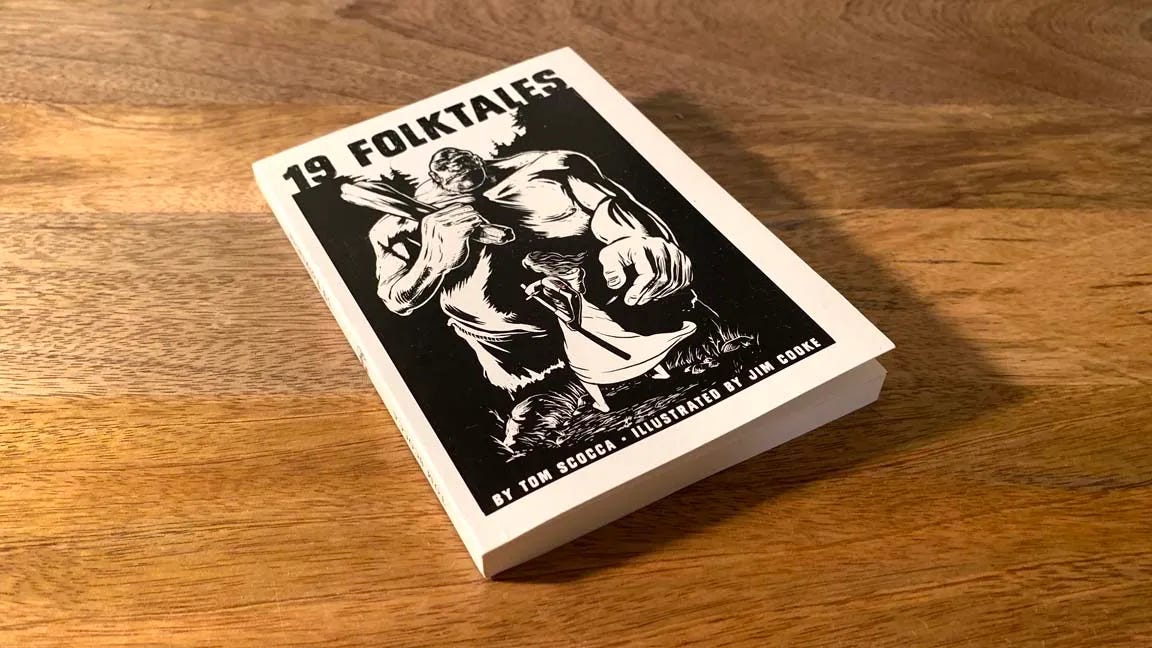Just a Goddamn Job
Indignity Vol. 4, No. 78

IN MEMORIAM DEP’T.
Steve Albini, 1962–2024
I HAD NO idea what Steve Albini was doing, at first. I was 17 and it was an afternoon in early 1989. I'd pulled a dining-room chair over by the stereo, plugged in my headphones, and put in a new CD. The physical setting (the dining chair, the winter light) is fixed in my memory, the way the scene is frozen when something irrevocable happens. There was a cymbal crash and then a drumbeat started, not the endlessly echoing boom of '80s pop-radio drums but a tight, specific sound of the sticks on the drumheads in an actual, resonant space somewhere.
All this clarity is in retrospect; before I could have begun to formulate it, there was a quiet but driving bass pattern and then a guitar as harsh and sudden as the cymbal and then a stinging, shout-speaking voice—You're so pretty when you're unfaithful to me!—what, man, 17, I wasn't personally even in a position for someone to be faithful to me—and the noise and fury rolled me over like a murky Atlantic breaker.
The album had gone half a dozen songs further before I could start to catch my bearings, and still there were wild lurches of mood, snatches of conversation—...there were RU-mors he was IN-to field-hockey players, there were RU-mors...—squeals of feedback, Spanish lyrics, moments of stillness, moments of annihilating loudness, all of it insistently present, sounding around me in a real but invisible room, somewhere far, far from home. For guidance I had nothing but the spare and cryptic packaging, with the list of names on the back: "Black Francis: Vocals, Guitars"? "Mrs. John Murphy: Bass, Vocals"? And then: "Produced and Engineered by Steve Albini."
I was all alone with my copy of the Pixies' Surfer Rosa, but thousands and thousands of people had a moment like this, on their own, with one record or another. They had discovered their new favorite sound, a sound that changed their sense of the world and who they might be in it, And somewhere on the album was Steve Albini's name.
It feels idiotically maudlin to discuss Albini that way, as a matter of a bunch of dumb kids' feelings. The punk musician and recording engineer, dead now of a heart attack at age 61, was astringent as the records he made. He recorded albums because bands paid him to record albums, and maintained that his basic goal was to "record their organic sound"; with the inverted punk snobbery of the era, he insisted he was an "engineer," not a "producer." He charged bands a job fee, refusing to ask for royalties. Surfer Rosa was a masterpiece that changed rock music forever, and Albini handled the accomplishment by calling it "a patchwork pinch loaf" from a "blandly entertaining" band—"[n]ever have I seen four cows more anxious to be led around by their nose rings."
Albini's own music was abrasive and entirely anti-commercial, a howl of focused bad feeling. His first major band, Big Black, had a song called "Pavement Saw," which wasn't far from a description of the whole aesthetic. Lurching in and out of intelligibility against grinding and clattering guitar riffs, Albini barked and sneered out lyrics in the first-person voice of sickos and monsters—perverts, racists, lunatics, killers, machismo-poisoned losers, yelling about the terrible things they'd done or wanted to do. Sneaking into a slaughterhouse, say, to use the equipment for fun: "So I guess they know / I'm not no company man / But I can pull on a rope / I can kill a cow / Fast as any other fucker can!"
It was artistically unsettling, using the heaviest tools of rock music to ask what the heaviest tools of rock music are really for, bludgeoning the listener into shouting along with brutishness and evil. After the ear had been caught up in the nihilistic, insistent chanting of "Kerosene," a surly small-town reverie about arson and abuse, it was impossible to hear a band like Rage Against the Machine riling people up with pounding, righteous leftist lyrics and not have some doubts.
Then again, Rage Against the Machine's cheesy anti-authoritarian messaging held up all too well in the new century, while Albini was left reconsidering what his punk provocations—in his art and in generally being a dick about things—had really done. It's a long time since Albini thought he could name one of his bands "Rapeman," after a Japanese comic book, on the premise that his audience should grasp the use/mention distinction in it. And Albini didn't grant himself any illusions about how things were, and how he was, back then.
"I am not afforded the luxury of secret shame, guys," he wrote on Twitter three years ago, about people digging up his public record. He went on, writing in the process an epitaph for, and indictment of, an era and a culture:
A lot of things I said and did from an ignorant position of comfort and privilege are clearly awful and I regret them...
I expect no grace, and honestly feel like I and others of my generation have not been held to task enough for words and behavior that ultimately contributed to a coarsening society...
For myself and many of my peers, we miscalculated. We thought the major battles over equality and inclusiveness had been won, and society would eventually express that, so we were not harming anything with contrarianism, shock, sarcasm or irony.
If anything, we were trying to underscore the banality, the everyday nonchalance toward our common history with the atrocious, all while laboring under the tacit *mistaken* notion that things were getting better.
There, from a guy whose chosen life's work was placing microphones, was the 21st century American reckoning, clear and concise: "the tacit mistaken notion that things were getting better." While the news of Albini's death was spreading online, so was a post from Apple's Tim Cook, a commercial for the newest iPad, showing the physical matter of culture and art—an upright piano, books, paint cans, a trumpet—being crushed down to nothing by a huge industrial press. The billionaire was proud of what the machinery could do. Fast as any other fucker can.

WEATHER REVIEWS
New York City, May 7, 2024
★★★★★ Clean, clear air let brilliant sun pour through. A light smell of tobacco—plain old-fashioned tobacco—led to a man on a stoop reading a glossy magazine or catalog folded over, cigar in hand. A chrome motorcycle helmet shone. Every stone and joint was sharply etched; the details on the Romanesque Revival arches by Amsterdam Avenue were nearly vibrating. Possible, or plausible, errands strung further and further up Broadway. The sidewalks were well populated, even on quiet side streets.

EASY LISTENING DEP'T.
CLICK ON THIS box to enjoy today's Indignity Morning Podcast:


SANDWICH RECIPES DEP’T.
WE PRESENT INSTRUCTIONS in aid of the assembly of a sandwich selected from Mrs. Ericsson Hammond's Salad Appetizer Cook Book, by Maria Matilda Ericsson Hammond. Published in 1924, and now in the Public Domain and available at archive.org for the delectation of all.
Sandwiches au Saumon fume a la Camilla
Take a half pound of well-smoked red salmon (not salty) and slice very thin; roll in small rolls an inch around and an inch in length; glaze them with aspic and decorate on each roll with a fine strip of truffle. Slice bread and cut it out with a round biscuit cutter, then butter it; put five rolls on each sandwich each roll meeting in the center; trim the bread in between each by scalloping it and in the center of each put some whipped cream through a paper bag. Decorate a daisy of truffle on top of the cream and then drip some aspic on the truffles. Arrange them on a platter in the form of a ring and garnish with parsley in the center. Serve before the soup.
If you decide to prepare and attempt to enjoy a sandwich inspired by this offering, be sure to send a picture to indignity@indignity.net.

MARKETING DEP'T.

Supplies are running low of the second printing of 19 FOLK TALES, still available for gift-giving and personal perusal! Sit in the gathering heat with a breezy collection of stories, each of which is concise enough to read before the sun gets high.

HMM WEEKLY MINI-ZINE, Subject: GAME SHOW, Joe MacLeod’s account of his Total Experience of a Journey Into Television, expanded from the original published account found here at Hmm Daily. The special MINI ZINE features other viewpoints related to an appearance on, at, and inside the teevee game show Who Wants to Be A Millionaire, available for purchase at SHOPULA.






